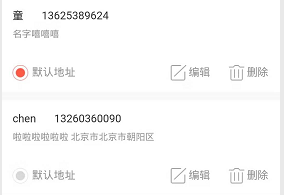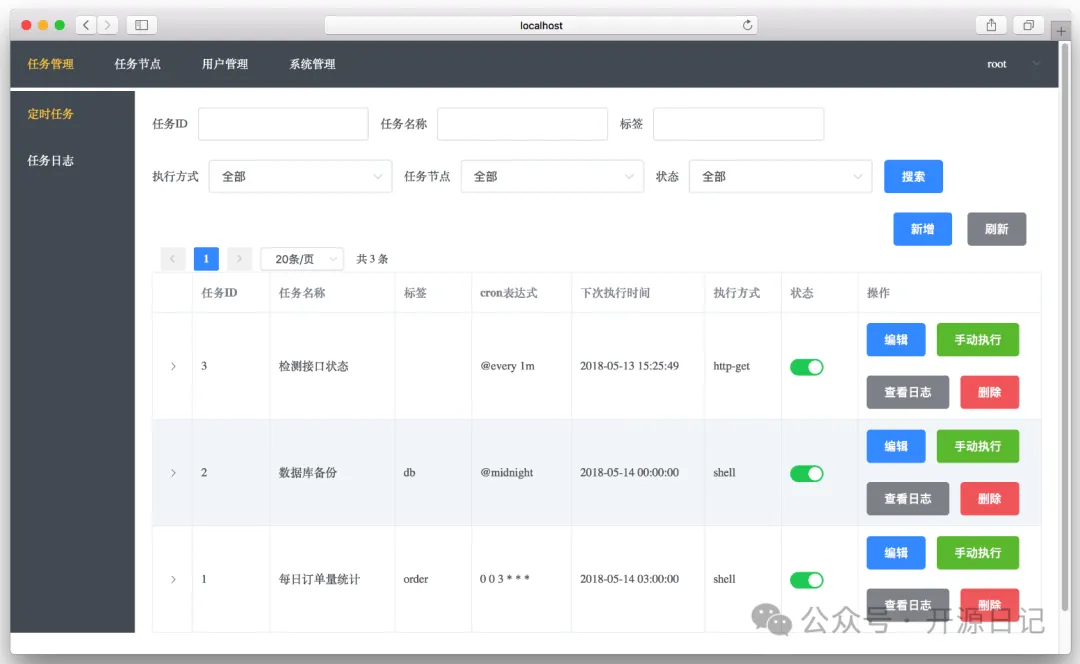首先要了解html标签,标签有主有次,大致了解以一下,主标签是根标签,也是所有要爬取的标签的结合体

先了解一下待会要使用代码属性:
#获取属性 a.attrs 获取a所有的属性和属性值,返回一个字典 a.attrs[\'href\'] 获取href属性 a[\'href\'] 也可简写为这种形式 #获取内容 a.string 获取a标签的直系文本 注意:如果标签还有标签,那么string获取到的结果为None,而其它两个,可以获取文本内容 a.text 这是属性,获取a子类的所有文本 a.get_text() 这是方法,获取a标签子类的所有文本 #find 主要用于找到第一个符合要求的标签 a.find(\'a\') 找到第一个符合要求的 a.find(\'a\', title=\"xxx\") 具有title=a属性的 a.find(\'a\', alt=\"xxx\") a.find(\'a\', class_=\"xxx\") a.find(\'a\', id=\"xxx\") #find_all 用于找到所有符合要求的标签 a.find_all(\'a\') a.find_all([\'a\',\'b\']) 找到所有的a和b标签 a.find_all(\'a\', limit=2) 限制前两个 #根据选择器选择指定的内容 a.select(\'#feng\')
我们今天要爬取的是bilibili网站,主要是作为一个练习,也没有太主要的作用,爬取的内容分别是
排名、视频名、视频集数、播放量、点赞量及视频链接,爬取完后要存储到csv文件内

直接上代码:
# -*- coding: utf-8 -*-
import requests
from bs4 import BeautifulSoup
r = requests.get(\'https://www.bilibili.com/v/popular/rank/guochan\') #要爬取的网站链接
html = r.content
soup = BeautifulSoup(html,\'html.parser\') #html.parser是解析器
div_people_list = soup.find(\'div\', attrs={\'class\': \'rank-list-wrap\'})
div_people_list_list = div_people_list.find(\'ul\', attrs={\'class\': \'rank-list pgc-list\'})
a_s = div_people_list.find_all(\'li\', attrs={\'class\': \'rank-item\'})
for a in a_s: #排名
for b in a.find_all(\'div\', attrs={\'class\': \'info\'}):
for c in b.find_all(\'a\', attrs={\'target\': \'_blank\'}): #名称及链接
for d in b.find(\'span\', attrs={\'class\': \'data-box\'}): #获取视频集
for e in b.find_all(\'span\', attrs={\'class\': \'data-box\'})[1:][:1]: #循环播放数
for f in b.find_all(\'span\', attrs={\'class\': \'data-box\'})[2:][:2]: # 循环点赞量
web = a[\'data-rank\'] # 排名
name = c.string # 名称
name_2 = d.string # 全集
name_2_1 = name_2.replace(\" \", \"\").replace(\"\\t\", \"\").strip() # 去除多余空格
name_3 = e.get_text() # 播放量
data_1 = name_3.replace(\" \", \"\").replace(\"\\n\", \"\").replace(\"\\t\", \"\")
name_4 = f.get_text() # 点赞量
data_2 = name_4.replace(\" \", \"\").replace(\"\\n\", \"\").replace(\"\\t\", \"\")
url = c[\'href\'] # 链接
print(web + \'\\t\' + name + \'\\t\\t\\t\' + name_2_1 + \'\\t\\t\\t\\t\' + data_1 + \'\\t\\t\\t\\t\'+ data_2+\'\\t\\t\\t\\t\' + f\'http:{url}\')
效果如下:

其实我在做一个爬虫的时候遇到很多的错误,就是html里的标签重复,需要使用[1:][:1]来选择标签,有的时候不是难,就是项目做的少
我们现在来加上这个代码,把爬取的内容保存下来:
import csv
f = open(\'爬取文件.csv\',\'w\',encoding=\'gbk\',newline=\'\') #写入文件
#基于文件对象构建 csv写入对象
csv_writer = csv.writer(f)
csv_writer.writerow([\'排行\',\'影片\', \'篇集\',\'播放量\',\'点赞量\',\'视频链接\'])
csv_writer.writerow([web, name, n,d,g,f\'http:{url}\'])
可以看到内容都存储到了csv文件内了,不是很乱,和刚刚dos窗口里的相比好了很多

完整代码如下:
# -*- coding: utf-8 -*-
import requests
from bs4 import BeautifulSoup
import csv
f = open(\'爬取文件.csv\',\'w\',encoding=\'gbk\',newline=\'\') #写入文件
#基于文件对象构建 csv写入对象
csv_writer = csv.writer(f)
csv_writer.writerow([\'排行\',\'影片\', \'篇集\',\'播放量\',\'点赞量\',\'视频链接\'])
r = requests.get(\'https://www.bilibili.com/v/popular/rank/guochan\') #要爬取的网站链接
html = r.content
soup = BeautifulSoup(html,\'html.parser\') #html.parser是解析器
div_people_list = soup.find(\'div\', attrs={\'class\': \'rank-list-wrap\'})
div_people_list_list = div_people_list.find(\'ul\', attrs={\'class\': \'rank-list pgc-list\'})
a_s = div_people_list.find_all(\'li\', attrs={\'class\': \'rank-item\'})
#a_s_2 = a_s.find_all(\'div\', attrs={\'class\': \'info\'})
for a in a_s: #排名
for b in a.find_all(\'div\', attrs={\'class\': \'info\'}):
for c in b.find_all(\'a\', attrs={\'target\': \'_blank\'}): #名称及链接
for d in b.find(\'span\', attrs={\'class\': \'data-box\'}): #获取视频集
for e in b.find_all(\'span\', attrs={\'class\': \'data-box\'})[1:][:1]: #循环播放数
for f in b.find_all(\'span\', attrs={\'class\': \'data-box\'})[2:][:2]: # 循环点赞量
web = a[\'data-rank\'] # 排名
name = c.string # 名称
name_2 = d.string # 全集
name_2_1 = name_2.replace(\" \", \"\").replace(\"\\t\", \"\").strip() # 去除多余空格
name_3 = e.get_text() # 播放量
data_1 = name_3.replace(\" \", \"\").replace(\"\\n\", \"\").replace(\"\\t\", \"\")
name_4 = f.get_text() # 点赞量
data_2 = name_4.replace(\" \", \"\").replace(\"\\n\", \"\").replace(\"\\t\", \"\")
url = c[\'href\'] # 链接
n = name_2.replace(\" \", \"\").replace(\"\\t\", \"\").strip() # 去除多余空格
d = name_3.replace(\" \", \"\").replace(\"\\t\", \"\")
g = name_4.replace(\" \", \"\").replace(\"\\t\", \"\")
#构建列表头
csv_writer.writerow([web, name, n,d,g,f\'http:{url}\'])
© 版权声明
THE END










暂无评论内容